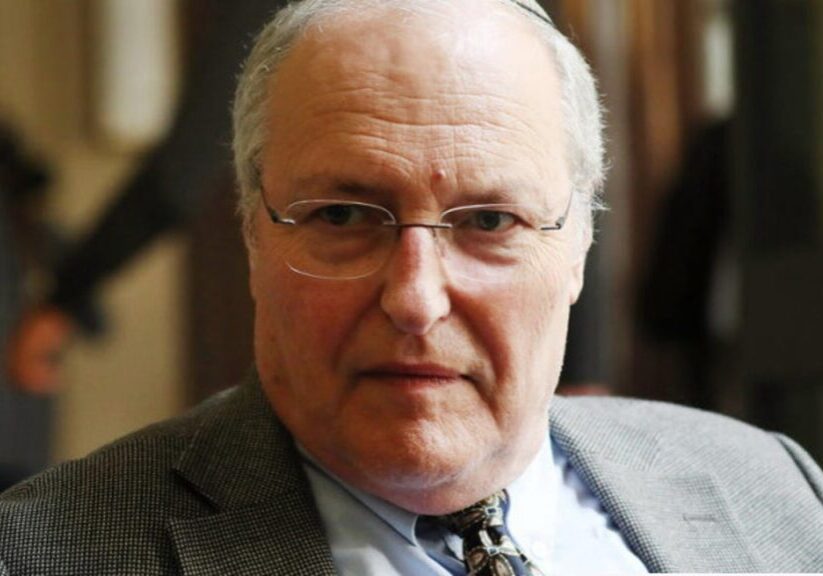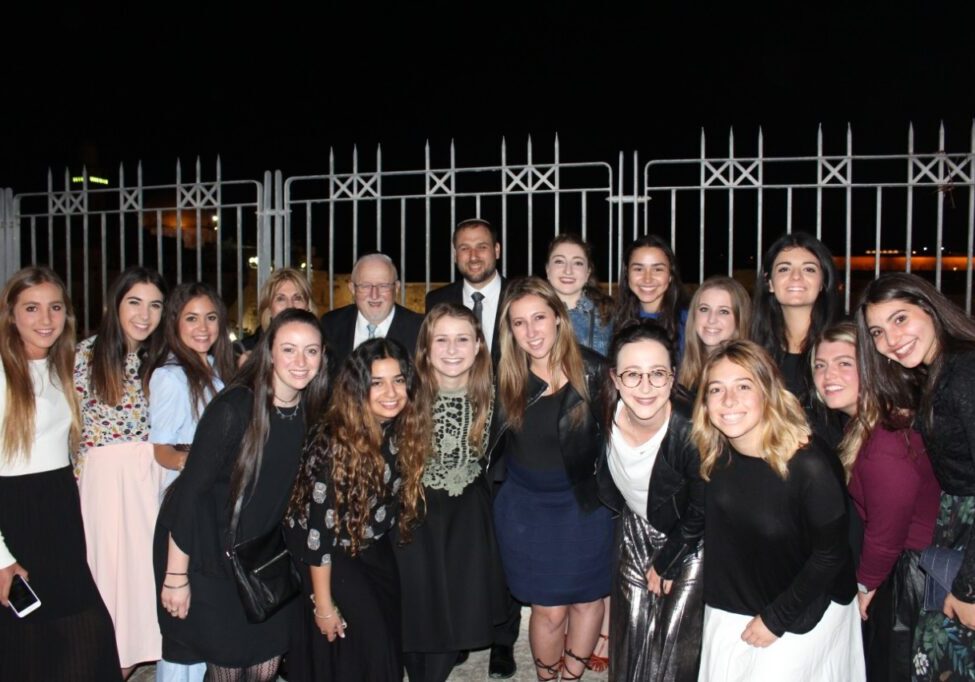Australia/Israel Review
The Conversion Factor
Jul 27, 2010 | Amotz Asa-El
Amotz Asa-El
We have just passed that time of the year again in Israel, when midsummer’s heat sends thousands of secular citizens to beaches, lakes and swimming pools, while religious people stay home for a nine-day period of mourning when orthodox refrain from shaving, swimming and eating meat. This mourning period marks the days leading to the Ninth of Av (which fell this year on July 20), the anniversary of the Jewish Temple’s destruction.
By the tenth day, however, religious Israelis join the rest of the country at the resorts, beaches and parks in what adds up to a happy reminder that, with Israel’s establishment, much of what the Jewish people has been lamenting since 70 CE has now been undone. And yet this year’s 1,940-year-old mourning period provided a proverbial backdrop to a new debate involving American Jews and Russian Israelis sandwiched between bickering politicians and hair-splitting rabbis as they wrangle over the modern way to implement one of the Roman destruction’s improbable survivals: conversion.
Back when it happened, the destruction dealt such a religious shock to the Jews that some thought their faith had become obsolete, as the Temple was so central to the observance and understanding of Judaism at the time.
It took great rabbinical vision and courage to combat this mindset and reinvent Judaism, by giving rise, for instance, to the synagogue as a substitute to the Temple and to the local scholar as successor to the council of sages that used to convene at the Temple. Conversion, the method whereby one voluntarily joins the Jewish faith, was also saved this way – the rabbis waived the biblical demand that the conversion process include a sacrifice at the Temple. Without this innovation, there would be no way today for non-Jews to become Jewish.
Still, Judaism did not actively seek converts. The Jewish faith never had the equivalents of Paul, Muhammad or the Reverend Moon, and, focused intently on Jewish conduct. Judaism never minded the rest of the world observing other faiths. In fact, the rabbis consciously made the process of joining Judaism complex, demanding and protracted.
Recently, however, a new reality has emerged, one for which rabbinical Judaism has not been well-prepared – the presence of a large population of up to 300,000 mostly post-Soviet immigrants who are only partly Jewish by birth, yet fully Israeli and generally self-identifying as Jewish. Moreover, this population serves in the IDF, often gallantly. The rabbinical establishment treats them by the strict letter of Jewish law, as it was formulated in distant times and under different circumstances. And since all marriages and divorces among Jews in Israel are administered by the state-sanctioned Rabbinate, people who are fully Israeli but only partly Jewish – those with one Jewish grandparent or a Jewish father rather than a Jewish mother – cannot formally marry unless converted, and therefore either go to nearby Cyprus to wed or simply establish families without a recognised marriage.
Now, a bill proposed by Knesset Law Committee Chairman David Rotem seeks to address this problem, but in a way that is provoking American Jewry’s large and powerful Conservative and Reform movements.
Rotem, who represents Foreign Minister Avigdor Lieberman’s Yisrael Beiteinu faction and its largely immigrant electorate, wants to ease the path of his constituents to conversion through the existing system, which remains dominated by the Orthodox Chief Rabbinate. According to his bill, aspiring converts will be allowed to approach any state rabbi regardless of their place of residency. This, he believes, would greatly increase the would-be convert’s ability to “shop” for rabbis with a lenient attitude toward conversion. At the same time, the state would effectively recognise only Orthodox conversions.
Non-Orthodox conversions are perceived as less demanding, since they require less rigid observance from the prospective convert. In fact, the rabbinate’s opponents say that historically converts were only demanded to practice Judaism during the conversion process, but once they were admitted to the faith no one scrutinised their conduct. The current Orthodox rigidity, they say, reflects not religion, but politics.
Indeed, there is much more to all this than piety.
Asked in 2003 why he left the ultra-Orthodox parties out of the coalition he assembled that year, then-Prime Minister Ariel Sharon answered that to him absorbing within a decade a million more immigrants was the Jewish state’s paramount strategic goal, “and in this regard the ultra-Orthodox stand in my way.” Sharon therefore left them in opposition, while establishing an agency for conversion headed by a modern-Orthodox rabbi who shared Sharon’s view that rabbinical lenience toward the immigrants was a strategic need. However, the authority’s work was largely torpedoed, as ultra-Orthodox rabbis refused to register the new authority’s converts for marriage, while others, when they applied for divorces, had their conversions retroactively revoked.
Current Prime Minister Binyamin Netanyahu and, indeed, the vast majority of Israelis, agree with Sharon’s original view that the partly Jewish immigration of the 1990s, which has since then demonstrated its patriotism, learned Hebrew, and contributed crucially to the economy’s development, should be made Jewish under religious law with minimum hassle. Moreover, Netanyahu is particularly sensitive to the qualms of American Jewry, with whom he has been close for decades and whose strategic value to Israel is well known.
Netanyahu therefore vowed, though it took him several days, to personally oppose and fight Rotem’s bill. The bill’s introduction has now been postponed following a tense meeting between Netanyahu and Lieberman, in which the two decided to jointly revise it during the Knesset’s summer break. Even so, it is likely to be a major bone of contention at the heart of Israel’s political system.
Relations between the Prime Minister and his Foreign Minister reached boiling point when it turned out that Netanyahu, working behind his foreign minister’s back, dispatched Labor’s Benjamin Ben-Eliezer, the Trade and Industry Minister, for a secret meeting with Turkish Foreign Minister Ahmet Davutoglu following the Gaza Flotilla crisis in May. Lieberman fumed at the prime minister’s failure to even notify him, let alone seek his consent, for what all agree is part of his role as foreign minister.
It took but several weeks for Lieberman to show that he, too, can operate unilaterally. After failing for months to reach agreement with Netanyahu over the appointment of an ambassador to the UN, Lieberman assigned for that hypersensitive position little-known diplomat Meron Reuven, a former ambassador to Paraguay, Bolivia and Colombia. Lieberman’s unusual move, facilitated by deeming the ambassador’s appointment temporary and thus avoiding the need for the cabinet approval which all ambassadorial appointments normally require, only highlighted the growing discord between him and the Prime Minister.
The conversion bill may have been suspended for now, but the conversion problem will only continue to weigh on the political system, and, more importantly, on Israeli society.
Eventually, analysts believe, life will prove stronger than all of this uniquely Israeli saga’s many protagonists. A younger generation of modern-Orthodox rabbis now derives its inspiration from the biblical figure of Ruth, the most famous convert in Jewish history.
“She first said ‘your people is my people’ and only then ‘your God is my God,’” said Rabbi Benjamin Lau, who heads the Beit Morasha conversion institute in Jerusalem. Jewish law, he argues, cannot treat the survivors of Communism’s 70-year war on Judaism as if they arrived out of the blue to become Jewish. Their special history must be taken into account, as must the new immigrants’ choice to live in Israel and send their children to serve in the IDF. This, Lau says, means they have already completed the first stage of conversion; “they already are at ‘your people is my people.’”
Ultra-Orthodox rabbis reject this attitude with both hands, equally opposed to its sense of compromise and to its approach toward history. Then again, adjustment to the demands of historical circumstances is nothing new in Judaism – it was practiced already by the sages the morning after the destruction of the Temple.
Tags: International Jewry






